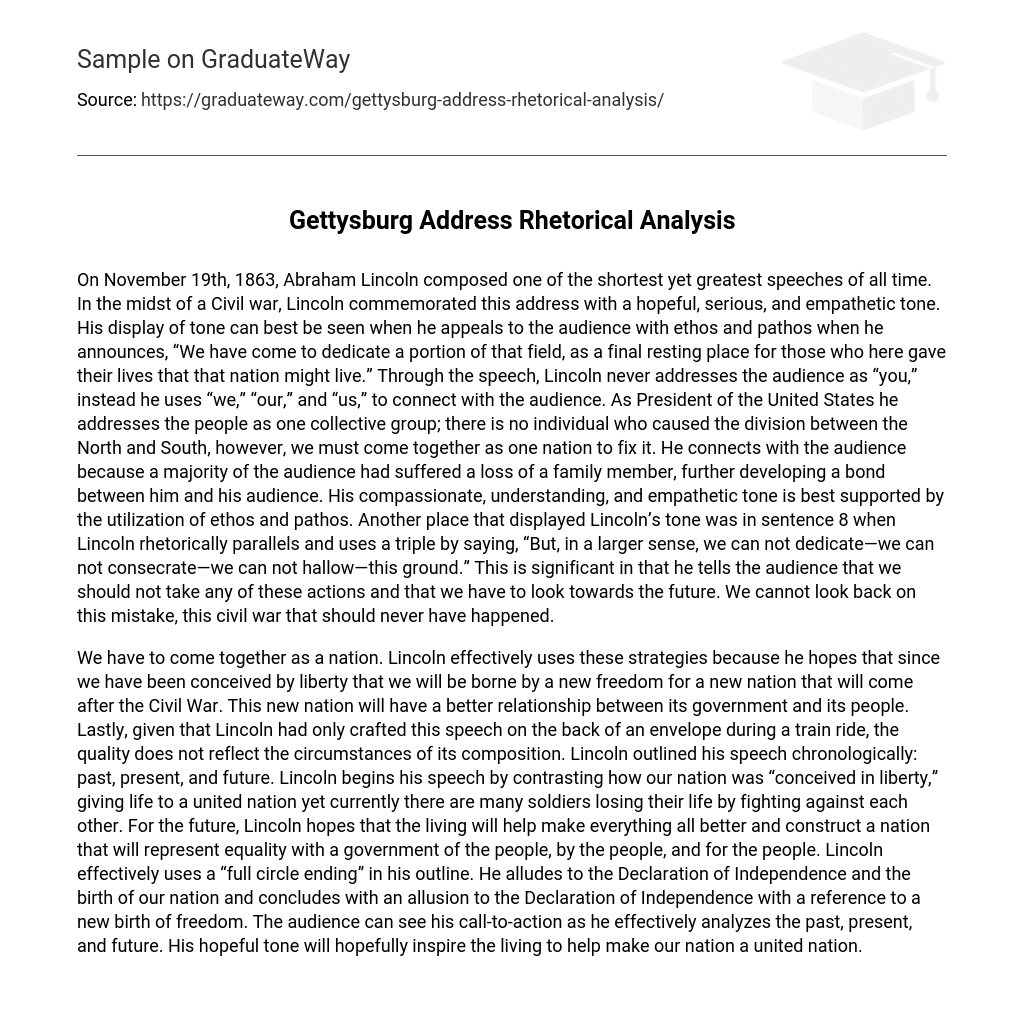Abraham Lincoln delivered a significant speech during the Civil War on November 19th, 1863. In his speech, he portrayed a hopeful, serious, and empathetic tone while utilizing ethos and pathos to connect with the audience. He declared that they have come to dedicate a portion of the field as a final resting place for those who sacrificed their lives for the nation’s survival. Throughout his discourse, inclusive language such as “we,” “our,” and “us” established this connection with the listeners. As President of the United States, he emphasized the importance of national unity in resolving the division between North and South. This connection was crucial as many members of the audience had experienced personal losses. By employing ethos and pathos, Lincoln showed compassion and empathy. Additionally, he used repetition to emphasize that dedicating or consecrating the ground was unnecessary and encouraged focus on the future instead. It is important not to overlook that this civil war was a tragic mistake that should have never happened.
Lincoln strategically employs various techniques in his speech to encourage national unity. One of these strategies involves emphasizing the concept of being born out of liberty, hoping for a new freedom to prevail in the aftermath of the Civil War. This new era is envisioned to foster a stronger connection between the government and its citizens. Despite its humble origins as a hastily drafted speech on a train journey, the quality of Lincoln’s address doesn’t reflect the challenging circumstances in which it was composed. The speech follows a chronological structure, encompassing the past, present, and future. Initially, Lincoln highlights how our nation was founded on the principles of liberty, leading to unity. However, in the present, this unity is disrupted by the loss of lives in the ongoing conflict. For the future, Lincoln desires that the living will collaborate towards building a nation that embodies equality, with a government supported by and working for the people. Notably, Lincoln effectively incorporates a “full circle ending” to his speech by referring back to the Declaration of Independence’s establishment of our nation and concluding with an allusion to a new birth of freedom. With this comprehensive analysis of the past, present, and future, Lincoln urges his audience to take action and strive for national cohesion. His hopeful tone seeks to inspire individuals in their efforts towards unifying our nation.





